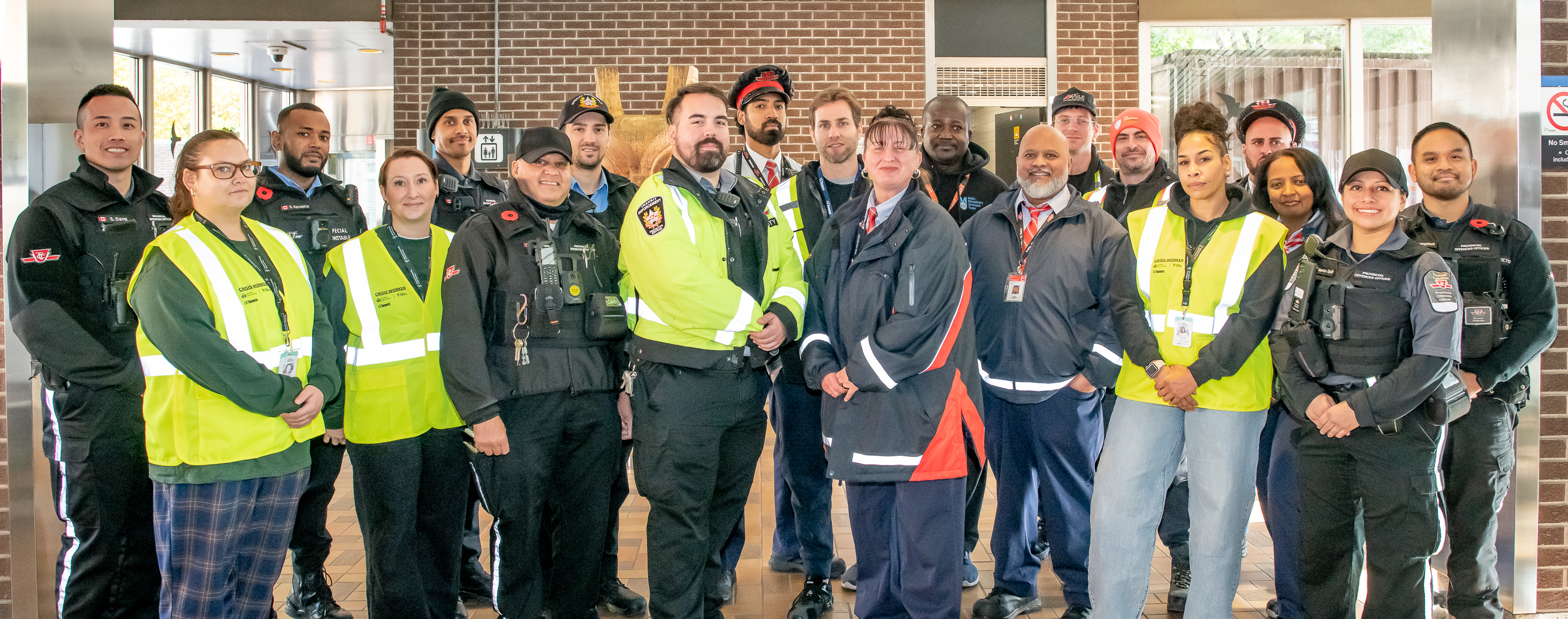TTC Community Safety Plan
The Toronto Transit Commission (TTC) is committed to making the transit system safer, more secure and equitable for all customers. The TTC’s Five-Year Community Safety, Security and Well-Being Plan, approved by the TTC Board on November 3, 2025, outlines how the TTC will implement actions to achieve the goal of improving and strengthening community safety, security, and well-being using a compassionate and people-first approach. These actions have been formalized under six different elements:
- Collaboration and Partnerships
- Communication
- Engagement
- Procedures and Training
- Vehicle, Station, and Facility Improvements
- Data Analysis and Monitoring
Learn more about the TTC’s Community Safety, Security and Well-Being Plan 2024 – 2028:
Learn more about the TTC’s facilitated community consultation in the following summary Report:

As part of the TTC’s comprehensive Community Safety, Security, and Well-Being Plan 2024–2028 plan, the TTC deploys high-visibility teams to provide on-site presence, as well as social services to support persons experiencing homelessness and individuals with complex needs – ensuring that whenever you need help on our transit system, help is here for you.
-
High-Visibility
Special Constables
Provide enforcement, de-escalation, overdose prevention, mental health support, community engagement.Provincial Offences Officers
Support the proof of payment system and act as a resource, while also encouraging customers to pay their fares.Contract Security Guards
Monitor and patrol assigned areas, respond to emergency calls.Protective Service Guards
Ensure the safety and security of TTC property and employees.Station Supervisors
Station monitoring, incident management and coordination with emergency responders.Customer Service Agents
Customer service and journey guidance, fare payment support.Toronto Police Service
Uniformed frontline officers responsible for law enforcement and maintaining safety.Transportation Supervisors
Provide route management, employee engagement, customer service, incident management and oversight of their area of responsibility to deter non-transit behaviours, conduct wellness checks and connect individuals with supports. -
Social Services
Streets to Homes Outreach Workers
Provide housing-related supports, food, water, wellness checks, clothing, harm reduction supplies, blankets, etc.Multi-Disciplinary Outreach Team (M-DOT)
Offer mental health services and support in accessing housing, basic needs, and medical care.Community Safety Ambassadors
Monitor and patrol designated areas and respond to emergency calls.Toronto Community Crisis Service Workers
In-person mental health supports provided by mobile crisis worker teams.Toronto Public Health
Provide services to reduce drug-related harm through outreach, counselling and support and referrals to other services.
Through these high-visibility teams, expanded crisis support, enhanced outreach, and continuous evaluation, the TTC is committed to reducing offences, increasing customer satisfaction, and fostering a compassionate, people-first transit environment.